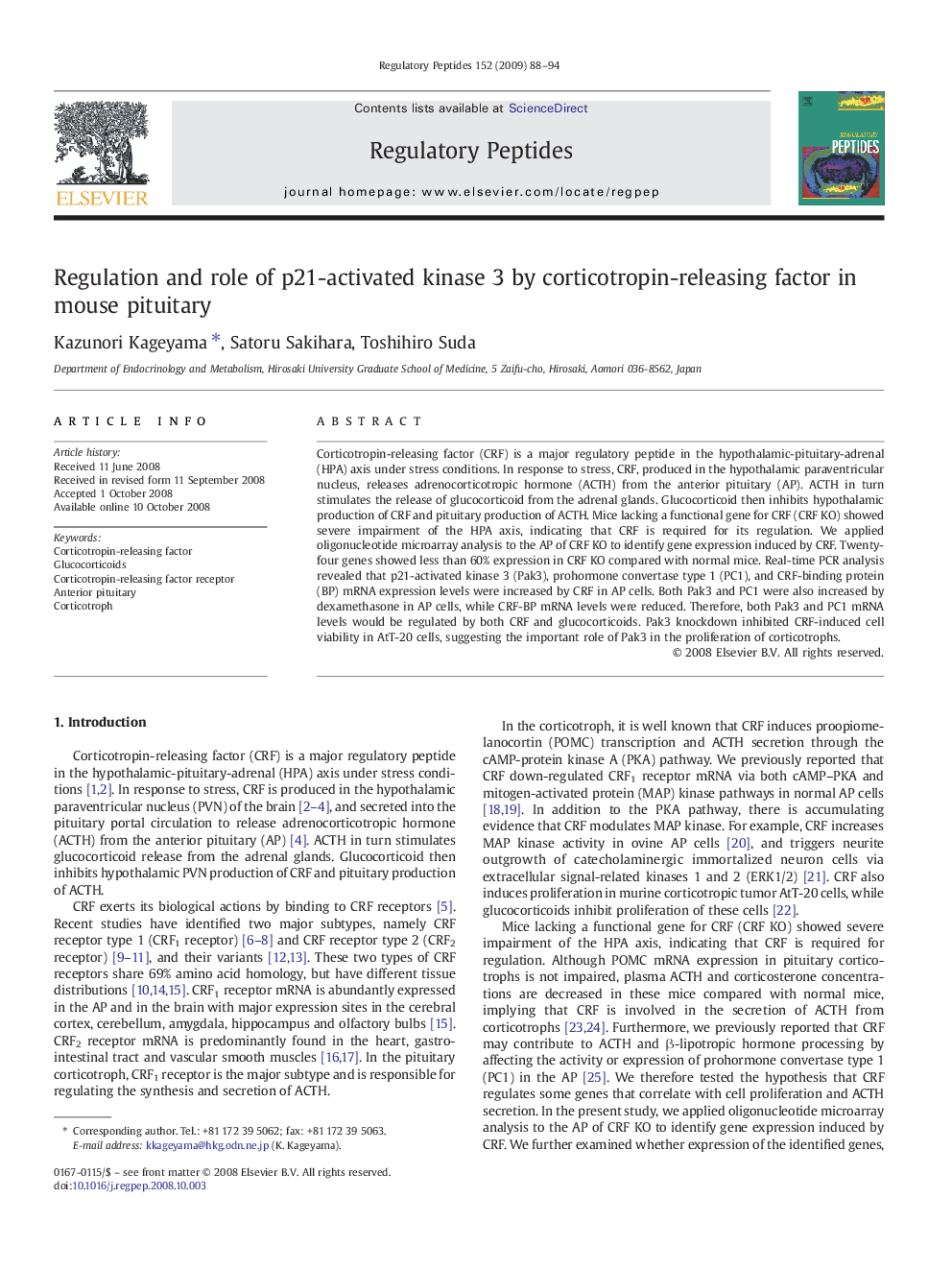| کد مقاله | کد نشریه | سال انتشار | مقاله انگلیسی | نسخه تمام متن |
|---|---|---|---|---|
| 2023075 | 1542433 | 2009 | 7 صفحه PDF | دانلود رایگان |
عنوان انگلیسی مقاله ISI
Regulation and role of p21-activated kinase 3 by corticotropin-releasing factor in mouse pituitary
دانلود مقاله + سفارش ترجمه
دانلود مقاله ISI انگلیسی
رایگان برای ایرانیان
کلمات کلیدی
موضوعات مرتبط
علوم زیستی و بیوفناوری
بیوشیمی، ژنتیک و زیست شناسی مولکولی
زیست شیمی
پیش نمایش صفحه اول مقاله

چکیده انگلیسی
Corticotropin-releasing factor (CRF) is a major regulatory peptide in the hypothalamic-pituitary-adrenal (HPA) axis under stress conditions. In response to stress, CRF, produced in the hypothalamic paraventricular nucleus, releases adrenocorticotropic hormone (ACTH) from the anterior pituitary (AP). ACTH in turn stimulates the release of glucocorticoid from the adrenal glands. Glucocorticoid then inhibits hypothalamic production of CRF and pituitary production of ACTH. Mice lacking a functional gene for CRF (CRF KO) showed severe impairment of the HPA axis, indicating that CRF is required for its regulation. We applied oligonucleotide microarray analysis to the AP of CRF KO to identify gene expression induced by CRF. Twenty-four genes showed less than 60% expression in CRF KO compared with normal mice. Real-time PCR analysis revealed that p21-activated kinase 3 (Pak3), prohormone convertase type 1 (PC1), and CRF-binding protein (BP) mRNA expression levels were increased by CRF in AP cells. Both Pak3 and PC1 were also increased by dexamethasone in AP cells, while CRF-BP mRNA levels were reduced. Therefore, both Pak3 and PC1 mRNA levels would be regulated by both CRF and glucocorticoids. Pak3 knockdown inhibited CRF-induced cell viability in AtT-20 cells, suggesting the important role of Pak3 in the proliferation of corticotrophs.
ناشر
Database: Elsevier - ScienceDirect (ساینس دایرکت)
Journal: Regulatory Peptides - Volume 152, Issues 1â3, 8 January 2009, Pages 88-94
Journal: Regulatory Peptides - Volume 152, Issues 1â3, 8 January 2009, Pages 88-94
نویسندگان
Kazunori Kageyama, Satoru Sakihara, Toshihiro Suda,